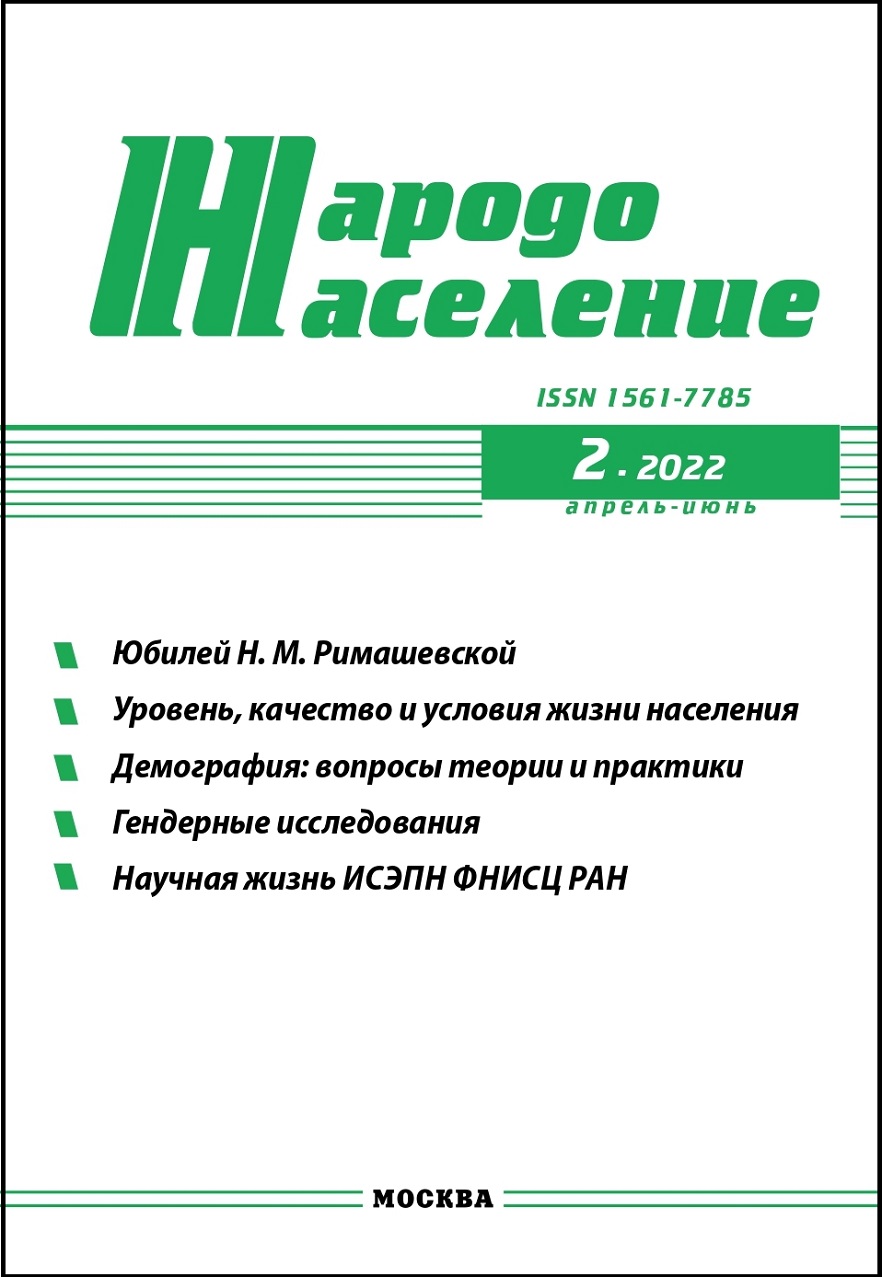Социальное государство: куда шло вчера, и что делать завтра
Научная статья
Для цитирования
Александрова О. А. Социальное государство: куда шло вчера, и что делать завтра // Народонаселение. 2022. Том 25. № 2. С. 6-18. DOI: https://doi.org/10.19181/population.2022.25.2.1
Аннотация
Социальное государство находилось в фокусе научных интересов Н. М. Римашевской. В статье представлен анализ того, что происходило с социальным государством в России в последние три десятилетия, и аргументирована необходимость преодоления имеющих место негативных тенденций, ведущих к его демонтажу. Выводы и рекомендации основываются на исследовании истории становления различных моделей социального государства, его экономического механизма, современных вызовов социальному государству, а также на анализе российского законодательства, бюджетной статистики, результатов социологических исследований, посвященных влиянию реформ в социальной сфере на уровень и качество жизни россиян. Показано, что в становлении социального государства в постсоветской России можно выделить три этапа, различающиеся экономическими возможностями государства и властной риторикой, но объединённые неолиберальной идеологией, проявляющейся в стремлении к сокращению социальных расходов и коммерциализации социальной сферы. Сокращение социальных обязательств государства вынуждает граждан самостоятельно решать вопросы приобретения жилья, лечения, материального обеспечения старости. В условиях низких доходов это выталкивает граждан на финансовый рынок, развивать который, следуя канонам финансиализированного капитализма, стремится государство. Демонстрируемые Россией на этом фоне далеко не лучшие социально-демографические и экономические показатели говорят о необходимости разворота в направлении подлинного развития социального государства, а события начала 2022 г. ставят эту задачу с предельной остротой. В статье изложены ключевые составляющие предлагаемого разворота, связанные с отказом от неолиберальных догм о негативном влиянии на экономический рост масштабных социальных расходов и политики перераспределения доходов на основе прогрессивного подоходного налогообложения, о селективной социальной политике как якобы эффективном инструменте борьбы с бедностью и других.
Ключевые слова:
социальное государство, социально-экономическая политика, социальные услуги, реформа бюджетных учреждений, расходы бюджета, коммерциализация социальной сферы
Литература
1. Гурова, Т. В левый поворот российский капитализм не впишется / Н. Гурова, В. Фадеев // Эксперт. — 1995. — № 14. — С. 12-16.
2. Болдырев, О.Ю. Проблемы реализации социального государства и конституционная реформа — 2020 / О. Ю. Болдырев, Ю. С. Ненахова // Народонаселение. — 2020. — Т. 23.— № 4. — С. 71-82. DOI: 10.19181/population.2020.23.4.7.
3. Arthur, Ch. Financial Literacy Education, Neoliberalism, the Consumer and the Citizen / Ch. Arthur. — URL: https://www.researchgate.net/publication/271206480 (дата обращения: 15.05.2019). DOI: 10.1007/978-94-6091-918-3.
4. Куликова, Т.Ю. Накопительная пенсия в условиях стабильно низких и отрицательных процентных ставок / Т. Ю. Куликова // Народонаселение. — 2019. — Т. 22. — № 4. — С. 51-61. DOI: 10.19181/1561-7785-2019-00038.
5. Taylor-Gooby, P. Social change, social welfare and social science / P. Taylor-Gooby. — New York, London, 1995. — 244 p.
6. Social policy in Western Europe and the USA, 1950-80: An assessment/ ed. by R. Girod et al. — London: Basingstoke, 1985. — 128 p.
7. Шевяков, А.Ю. Неравенство, экономический рост и демография: неисследованные взаимосвязи/ А. Ю. Шевяков, А. Я. Кирута. — Москва: М-Студио, 2009. — 192 с.
8. Rothstein, B. Just Institutions Matter: The Moral and Political Logic of the Universal Welfare State / B. Rothstein. — Cambridge, 1998. — 254 p.
9. Человек социальный как цель и источник развития России. Научный доклад / ред. О. А. Александрова, В. В. Локосов. — Москва: ИСЭПН РАН, 2018. — 87 с.
2. Болдырев, О.Ю. Проблемы реализации социального государства и конституционная реформа — 2020 / О. Ю. Болдырев, Ю. С. Ненахова // Народонаселение. — 2020. — Т. 23.— № 4. — С. 71-82. DOI: 10.19181/population.2020.23.4.7.
3. Arthur, Ch. Financial Literacy Education, Neoliberalism, the Consumer and the Citizen / Ch. Arthur. — URL: https://www.researchgate.net/publication/271206480 (дата обращения: 15.05.2019). DOI: 10.1007/978-94-6091-918-3.
4. Куликова, Т.Ю. Накопительная пенсия в условиях стабильно низких и отрицательных процентных ставок / Т. Ю. Куликова // Народонаселение. — 2019. — Т. 22. — № 4. — С. 51-61. DOI: 10.19181/1561-7785-2019-00038.
5. Taylor-Gooby, P. Social change, social welfare and social science / P. Taylor-Gooby. — New York, London, 1995. — 244 p.
6. Social policy in Western Europe and the USA, 1950-80: An assessment/ ed. by R. Girod et al. — London: Basingstoke, 1985. — 128 p.
7. Шевяков, А.Ю. Неравенство, экономический рост и демография: неисследованные взаимосвязи/ А. Ю. Шевяков, А. Я. Кирута. — Москва: М-Студио, 2009. — 192 с.
8. Rothstein, B. Just Institutions Matter: The Moral and Political Logic of the Universal Welfare State / B. Rothstein. — Cambridge, 1998. — 254 p.
9. Человек социальный как цель и источник развития России. Научный доклад / ред. О. А. Александрова, В. В. Локосов. — Москва: ИСЭПН РАН, 2018. — 87 с.
Статья
Поступила: 10.04.2022
Опубликована: 06.06.2022
Форматы цитирования
Другие форматы цитирования:
APA
Александрова, О. А. (2022). Социальное государство: куда шло вчера, и что делать завтра. Народонаселение, 25(2), 6-18. https://doi.org/10.19181/population.2022.25.2.1
Раздел
УРОВЕНЬ, КАЧЕСТВО И УСЛОВИЯ ЖИЗНИ НАСЕЛЕНИЯ








